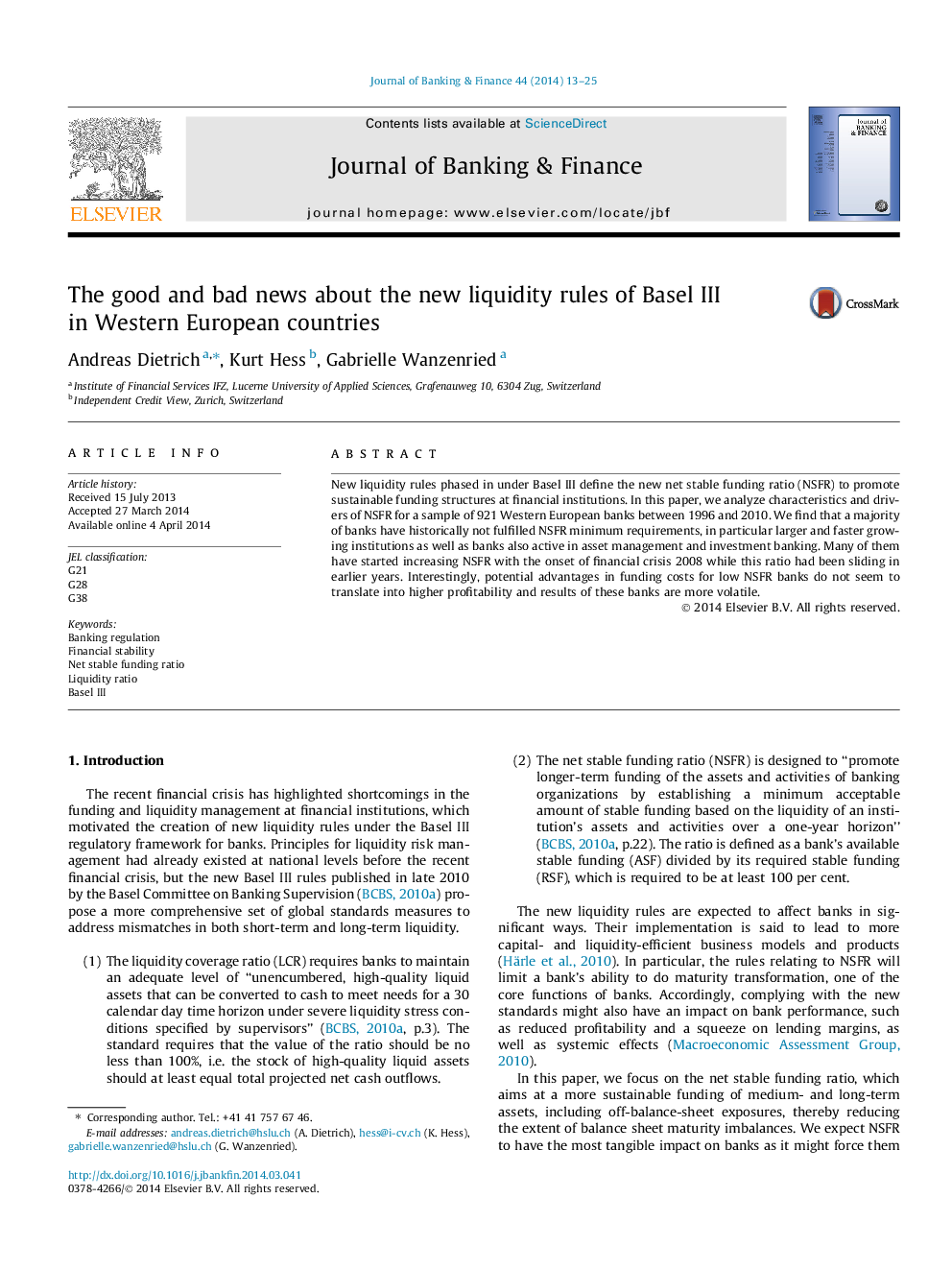| Article ID | Journal | Published Year | Pages | File Type |
|---|---|---|---|---|
| 5088960 | Journal of Banking & Finance | 2014 | 13 Pages |
Abstract
New liquidity rules phased in under Basel III define the new net stable funding ratio (NSFR) to promote sustainable funding structures at financial institutions. In this paper, we analyze characteristics and drivers of NSFR for a sample of 921 Western European banks between 1996 and 2010. We find that a majority of banks have historically not fulfilled NSFR minimum requirements, in particular larger and faster growing institutions as well as banks also active in asset management and investment banking. Many of them have started increasing NSFR with the onset of financial crisis 2008 while this ratio had been sliding in earlier years. Interestingly, potential advantages in funding costs for low NSFR banks do not seem to translate into higher profitability and results of these banks are more volatile.
Related Topics
Social Sciences and Humanities
Economics, Econometrics and Finance
Economics and Econometrics
Authors
Andreas Dietrich, Kurt Hess, Gabrielle Wanzenried,
